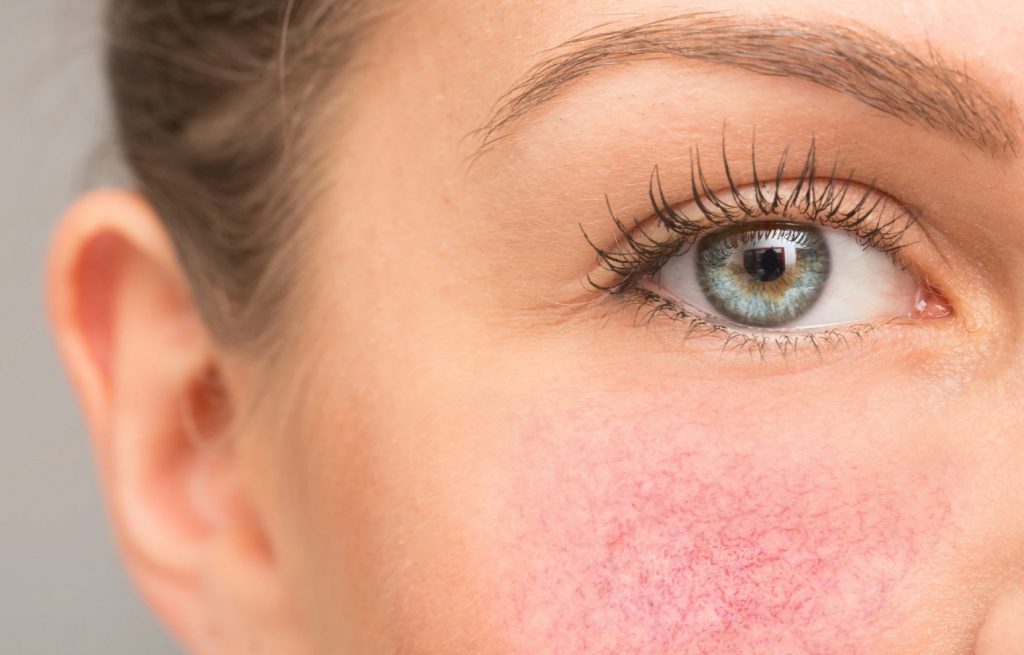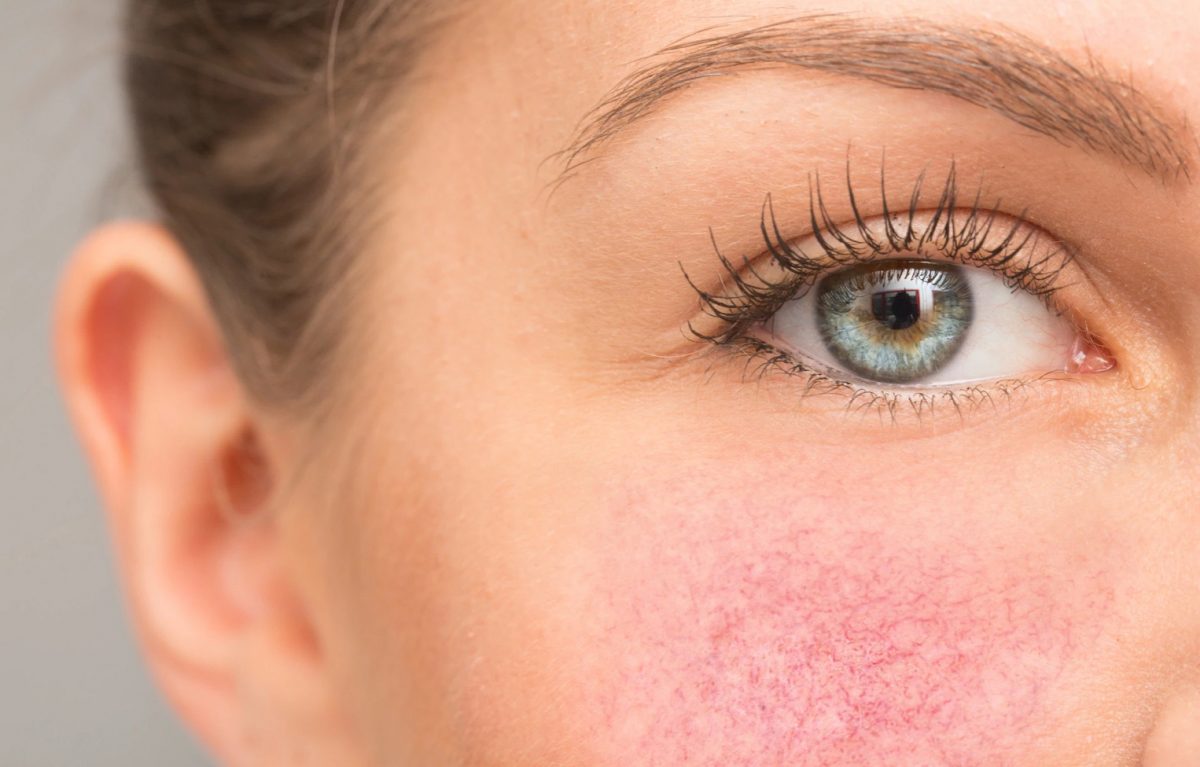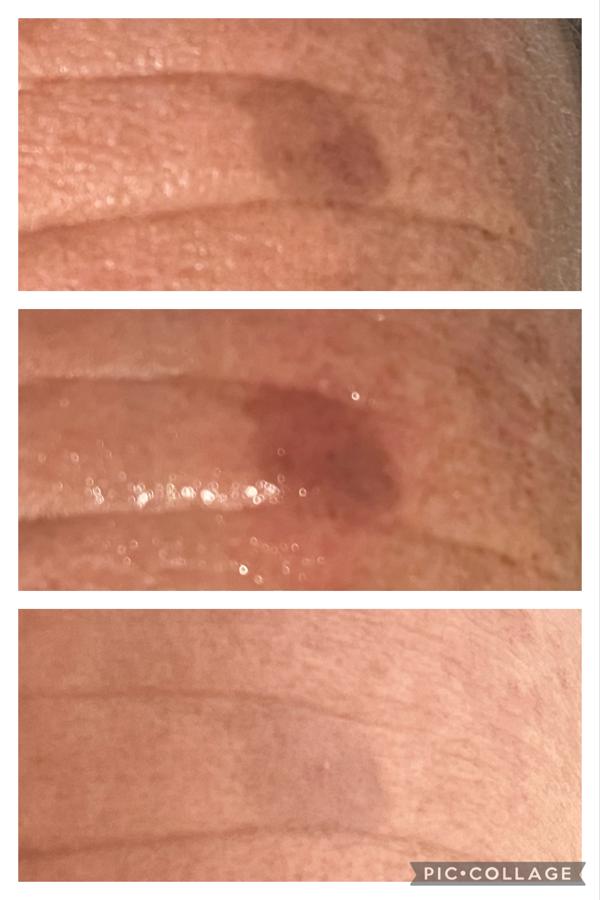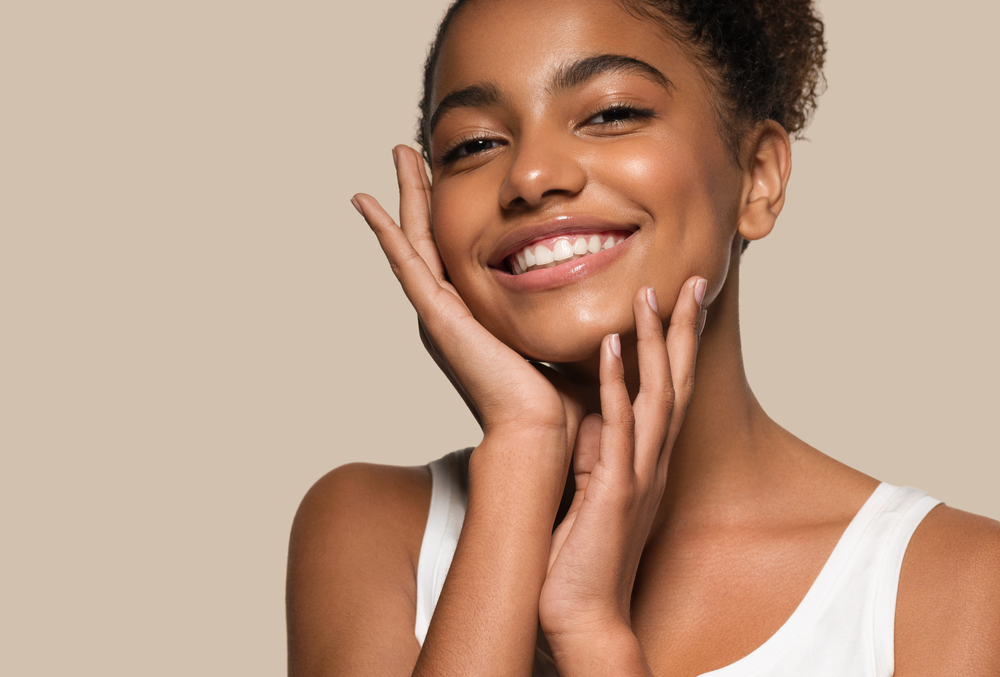
Rosacea is a skin condition that primarily affects the face, causing redness, flushing, and visible blood vessels. It typically begins with episodes of facial flushing or blushing that may eventually become permanent.
The exact cause of rosacea is unknown. Factors such as sun exposure, hot or cold weather, emotional stress, certain foods, alcohol, and spicy foods can trigger or worsen the symptoms in some individuals.
How can we help you with Rosacea?
In many ways, during your consultation, we can chat about the different options available to you at the clinic.
Skin rejuvenation procedures can potentially help manage the symptoms of rosacea, although the effectiveness may vary from person to person.
Laser Therapy can help target and reduce the redness associated with rosacea. It can also help minimize visible blood vessels and improve overall skin texture, provide long-lasting results.
Chemical Peels in particular those containing alpha hydroxy acids (AHAs), may help improve the appearance of rosacea. They can exfoliate the skin, reduce redness, and improve texture. If you chat to Rachael our skin specialist she can advise you on which peel is best for your skin.
Microneedling is a procedure that creates tiny punctures in the skin using a device with fine needles. It stimulates collagen production and can improve overall skin texture, reducing the appearance of rosacea symptoms.
It’s important to note that the effectiveness of these treatments can vary, and some individuals may experience better results than others.
We can have a chat at your consultation to work out your specific condition and recommend the most suitable treatment options for you.
Additionally, it’s crucial to follow a comprehensive skincare routine, avoid triggers that worsen rosacea symptoms (such as certain foods or environmental factors), and protect your skin from excessive sun exposure to manage rosacea effectively. You can talk with Rachael about our Alumier products and which ones would best suit you.





